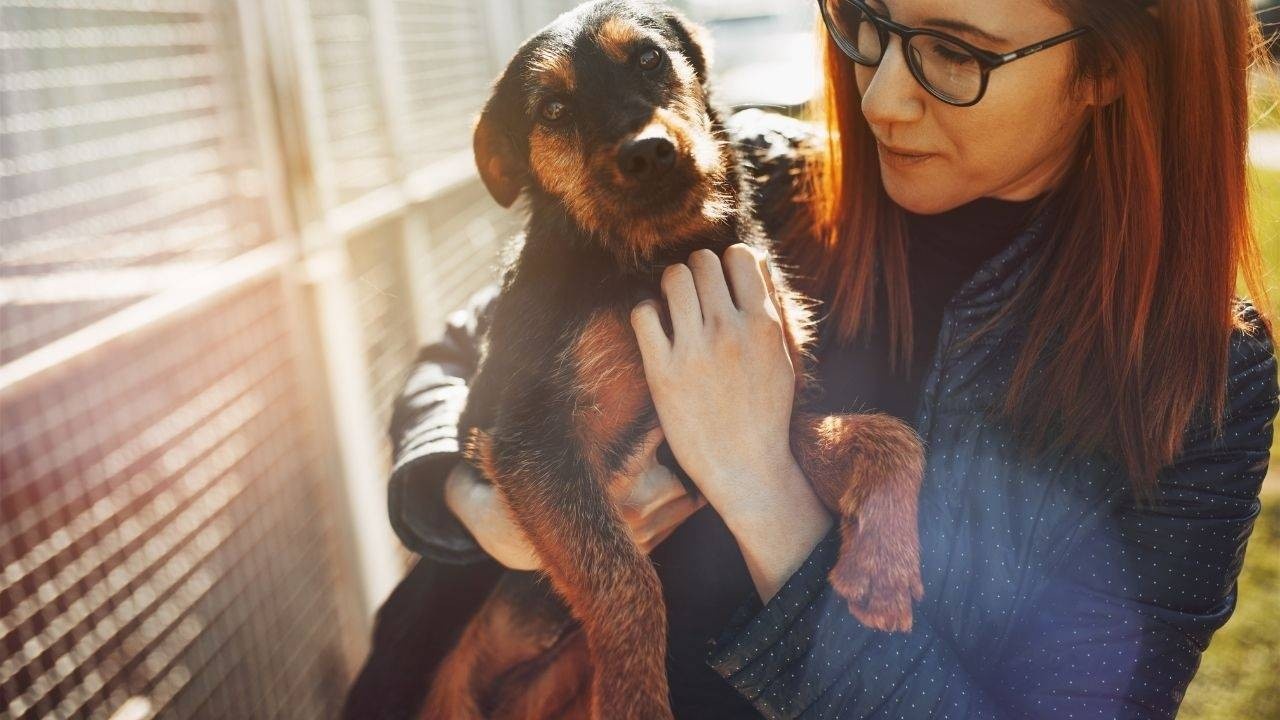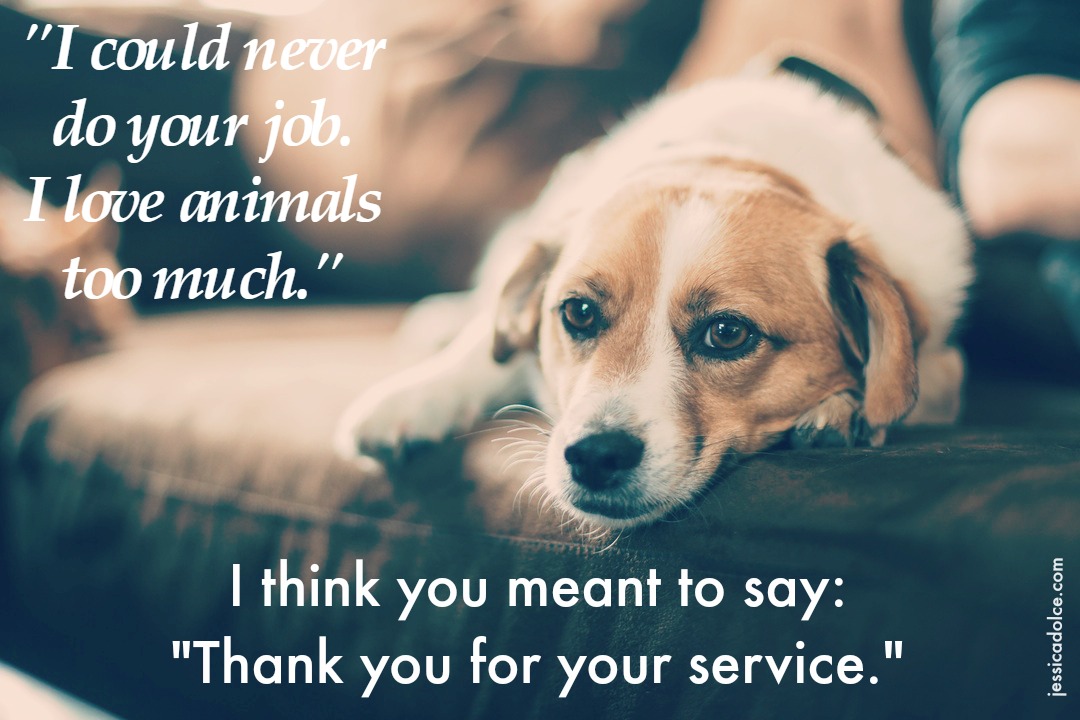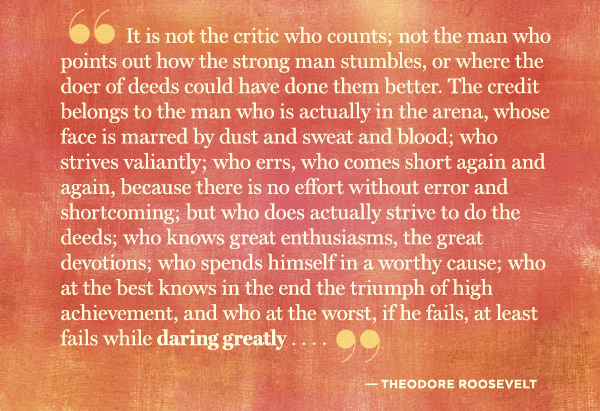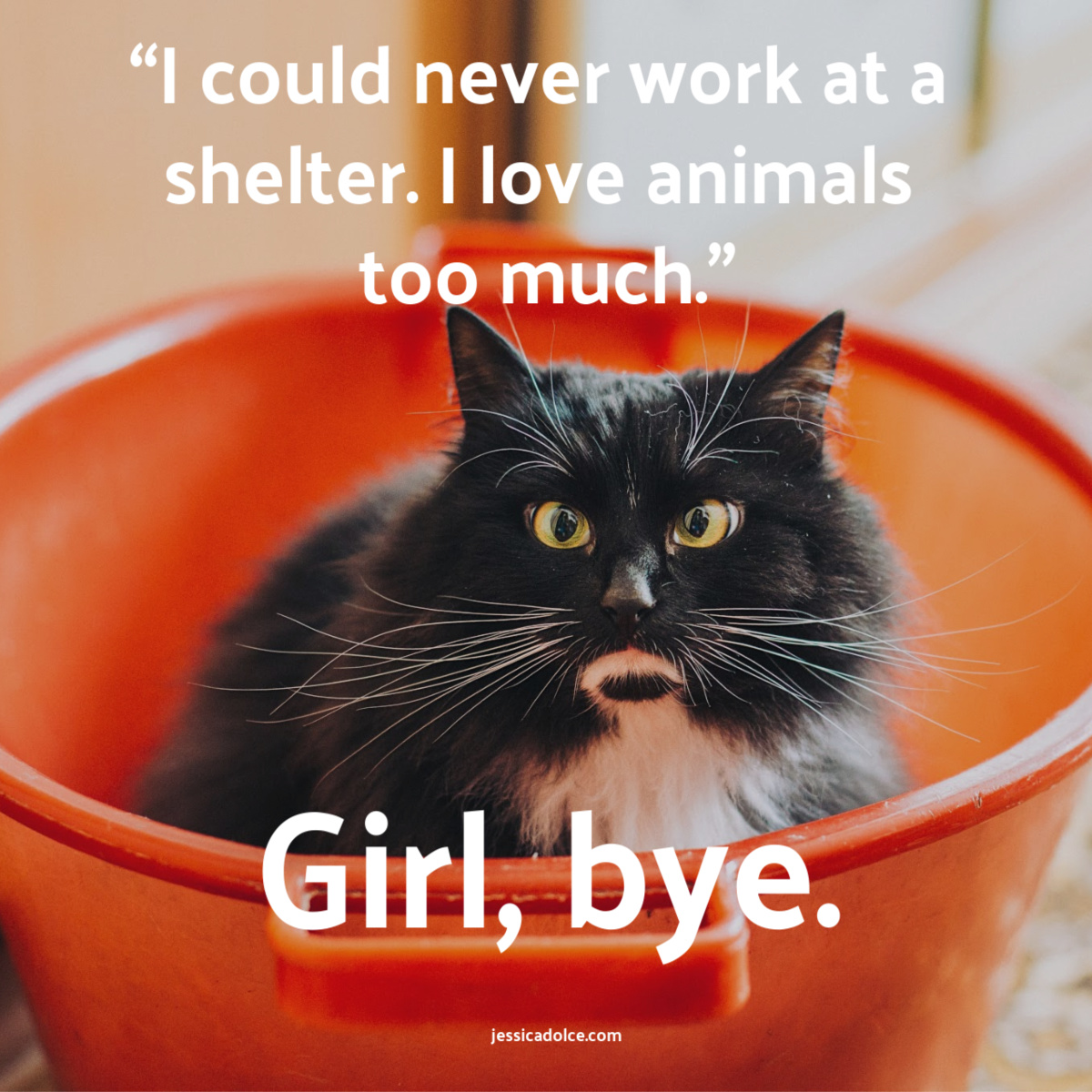Flip the Script: I Could Never Do Your Job, I Love Animals Too Much

“What do you do?”
“I work at an animal shelter.”
“I could never work at a shelter. I love animals too much.”
“Please go away now.”
Every single person who works in an animal shelter has had someone say this to them. All of us.
It’s what people say in response to hearing what line of work we’re in. They’re not thinking about what they’re saying and my bet is that they don’t mean to hurt our feelings.
But they do.
In every workshop I give, every class I teach, and in some recent research I was a part of through the Shelter Medicine program at UF, this one phrase comes up again and again.
It pisses you off. It hurts your feelings. It’s lodged in your brains.
That’s because when someone says:
I could never do your job. I love animals too much.
We hear:
You must not love animals (as much as I do) and that’s why you can do that horrible work.
Of course, that’s bananas. The people who work in animals shelters love animals more than the average person.
That’s why we’re willing to put ourselves out there to help them in their time of need. That’s why we keep showing up to work in difficult conditions where the limited resources rarely meet the needs. It’s why, when necessary, we’re willing to walk with them in their final moments, letting animals know that they are are seen and loved, as they leave the world.
We love animals more than anyone! We know this. You know this. Truly, you do.
So why does this flip remark tweak so many of us so badly? I can’t tell you how many times I’ve heard this phrase cited as a contributor to our compassion fatigue.
Let’s break it down:
On one hand, we get upset because that comment reveals how little the general public understands the complex work that we do. Also, as the late, great Rodney Dangerfield said, we don’t get no respect.
Is that stressful? Yeah it is.
On the other hand, we also get upset because we’re telling ourselves a story about what we think the other person means.
We interpret what they say through filters created by our own individual experiences and perceptions. Some of those experiences may include having been harshly criticized for euthanizing animals or for having to charge money for our services.
It may also include our own mixed feelings about the work that we do (mixed feelings, including guilt, are really normal) and how we’re being affected by it.
We take this comment very personally. But if you think about how we’re all being told the exact same thing, it really isn’t personal at all!
As with many things in life, including work, when we take things like this personally we add a thick layer of optional suffering onto that annoying, but ultimately harmless, comment.
Remember: meaning is co-created.
Since we can’t control what other people say or do, we can focus on what we can control: our end of the conversation. We can choose to tell ourselves different stories about other people’s actions. We can change our interpretation, so that it feels better for us. Let me explain.

Even when I was at my worst stages of compassion fatigue it didn’t hurt my feelings when people said this me:
I could never work at a shelter. I love animals too much.
Because for some lucky reason (that I take no credit for) my filters allowed me to hear it this way:
I’m not strong enough to do that work. I don’t know how I’d survive it.
I perceived the comment as a reflection of them and the nature of the work (it is hard!). It had almost nothing to do with me. But, if it did have anything to do with me, I chose to interpret it as a compliment.
As in:
I’m not strong enough to do that work, but you are.
Believe me, I get how you could hear the first way. But let’s be honest. We know that’s not what most people really mean.
OK, some insensitive or judgmental people might actually mean that they love animals more than you, but who cares what they think? If they’re not willing to get in the arena and do the work with you, then they’re just critics.
Thank you Brené Brown for the book and Theodore Roosevelt for this:

Most people simply mean that they care about animals and they don’t know how they’d cope with all the pain and suffering. That’s legit.
Could they say something better? Sure! They could say:
“I love animals so much, but I don’t think I’m brave enough to do that work. Thank goodness there are strong, compassionate badasses like you that choose to step up.”
Or just something simple like:
“Wow, that’s tough. Thank you for your service.”
And then you can say:
“Thanks for appreciating what I do. It’s really hard, but you know what makes it easier? Donations.”
Then ask them to write your shelter or rescue or clinic a check.
So the next time someone says they couldn’t do what you do because they love animals too much, just smile.
Practice the fine art of compassionate badassery: know who you are, what you value, why you do this hard, but deeply meaningful work, and then choose not to get rattled by other people’s comments.
Choose to hear it as a compliment instead. Choose to spin the story in whatever way lifts you up or, at the minimum, doesn’t make your eyelid twitch.
In fact, go ahead and choose to interpret anything that comes across your plate as being less personal, less insulting, less intentionally menacing, and way more neutral or benign.
Doing that isn’t for anyone else’s benefit (though it will benefit others). It’s a freebie you can throw yourself so that you suffer less. And wouldn’t that be nice?
The work is hard enough as it is. Flip that script so that it hurts less and serves you better!

Let's Stay Connected.
Sign up for ideas, updates, and your free copy of The ABCs of Self Care Workbook!
I heart boundaries and will never sell your email address. Unsubscribe at any time.

